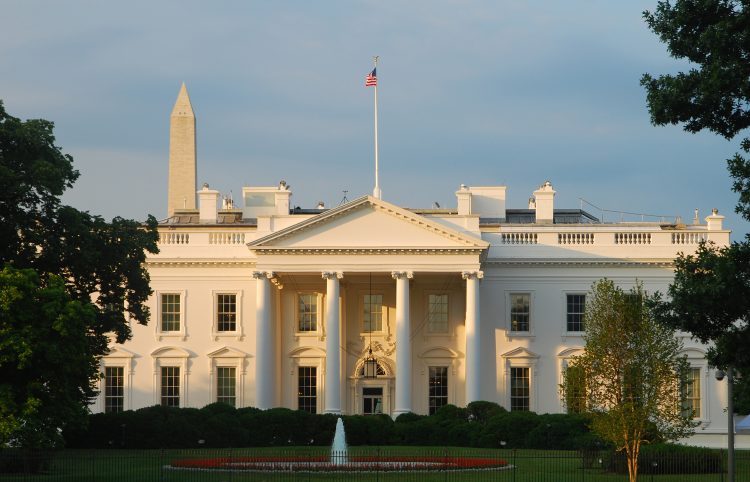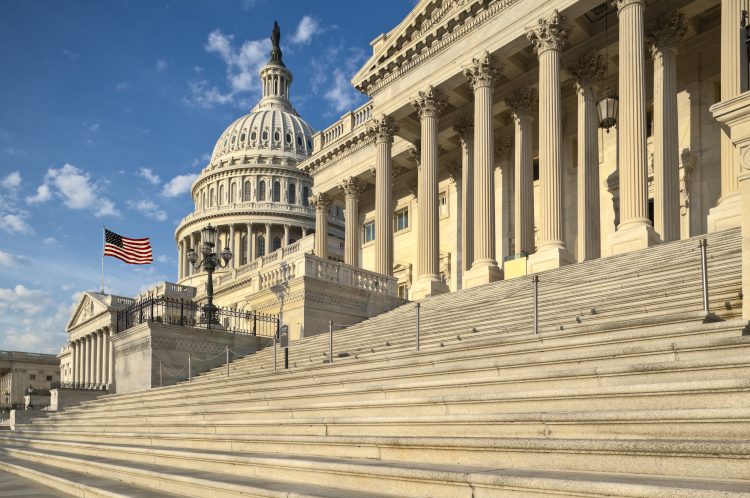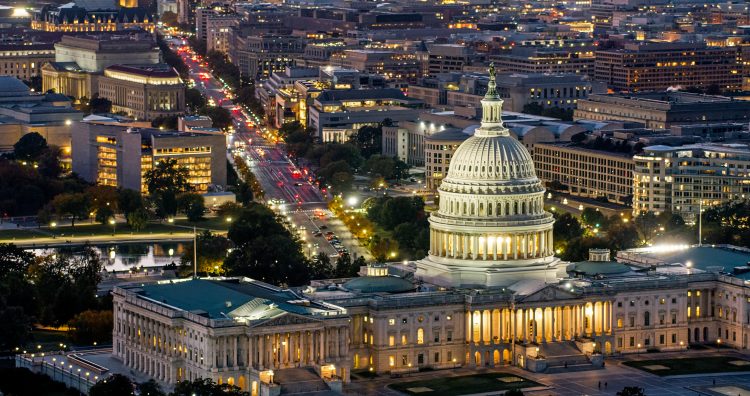This week on Facing the Future we looked at how the new Republican majorities in the House and Senate are expected to handle major issues such as tax cuts, tariffs, government waste, and the debt limit. Our guests were Brian Riedl of the Manhattan Institute and Ben Ritz of the Progressive Policy Institute.
There has been a lot of discussion in Washington about the major fiscal cliff coming up at the end of 2025 when a portion of the 2017 Trump tax cuts expire. Before the elections, most of the talk had been about the trade-offs that might be needed to get an agreement between the parties.
But now, with the Republicans taking control of the House, Senate, and White House, it’s possible that Republicans can get what they want without compromising with Democrats by passing a budget resolution with reconciliation instructions, which is a budget process maneuver that would allow them to overcome a filibuster by Democrats in the Senate.
So with that in mind, we asked our guests whether the Republicans would try to pass additional tax cuts, beyond simply extending those scheduled to expire, and whether concerns about the growing debt would prompt them to include some offsets to reduce the effect on the deficit.
Riedl drew a contrast between now and when the tax cuts were originally passed. “In 2017,” he said, “when Trump took office with the Republican Congress they went on a path to tax cuts with a deficit of $585 billion. This year, Trump is taking office with the Republican Congress ready to cut taxes, but they’re starting with a deficit of $1.8 trillion.
So one would hope that with the deficit triple what it was in 2017 we won’t see the same deficit increasing playbook that we had in 2017, and that means having some offsets.”
“What I am hearing from lawmakers and budget committee staff,” he continued, “is that Republicans are almost sure to extend the 2017 tax cuts with minimal to no offsets as part of a reconciliation bill. Where the offsets may come in handy for them and be necessary is for any additional tax cuts beyond that. We also may see things like shrinking the timing window to make the cost look shorter. So instead of doing a 10- year extension, you do a 5-year extension, and that makes the 10-year cost look smaller. But really, you know, the eventual budget deficit numbers are going to be what they’re going to be.”
Ritz indicated that the Democrats do not have good options. “The short answer is, we just point out how bad it is, and vote no. We’ll try to push for improvements on the margin where we can. They’re going to do something and if they do a 5-year extension, hopefully the next president and a Democratic Congress can keep it from getting extended a second time. We just kind of grit our teeth because this is not going to be a bill that we’re going to like. They’re probably just going to plow ahead with as many tax cuts as they’re able to get through.”
Ritz cautioned, however, that Republicans “should look at the challenges that the Democrats had. Democrats pushed a lot of spending through reconciliation. We saw how voters viewed that with its impacts on inflation. There’s a big risk for Republicans from not learning from that lesson. We see them not just trying to push tax cut extensions, but actually making it bigger, and if they’re not offsetting that they may find themselves doing the same things that Biden did in paying a similar price for it. You have to think about what the conversation about inflation was in 2017 versus today. In 2017, there were some pretty influential people who were saying that inflation just wasn’t a thing anymore, and there was little concern about how the Trump tax cuts could be pushing inflation up. This time, it’s a much more real concern, and they’ll ignore it at their peril.”
We also discussed President-elect Trump’s proposed Department of Government Efficiency (DOGE) to be chaired by Elon Musk and Vivek Ramaswamy. Both of our guests were skeptical about how this initiative is developing.
Riedl said, “I’m a fiscal conservative. I want significant spending cuts. I want to get rid of waste. Unfortunately, I’ve been in Washington too long to have a lot of optimism for this commission. When Musk said he wants to eliminate one-third of Federal spending that showed a lack of familiarity with where the money goes. You can’t get rid of a third of the government without eviscerating Social Security, Medicare, defense, veterans. That’s not going to happen. Ramaswamy said that we need to defund the $500 billion spent on programs with expired authorizations, seemingly without realizing that that would mean eliminating veterans health care, the Department of Justice, NASA, and all American embassies. This suggests that they’re being a little more gimmicky and frankly in over their heads rather than actually looking for waste and inefficiencies, which is hard. I wish they would truly go after true waste, and I’m not sure they have the attention span to do that.”
Ritz agreed. “You can’t cut $2 trillion from the budget just through finding waste, fraud,and abuse. The vast majority of Federal spending is Social Security, Medicare, health care costs, national defense. These are all things that Trump has pledged not to cut.”
“There is not $2 trillion in spending on things that he has said are on the table that could be cut,” Ritz continued, “let alone just cutting waste from those programs. So I think there’s a clear lack of familiarity with where the money goes and what actually could be cut. The other concern I have frankly is that Elon Musk is somebody with a lot of government contracts. There’s a big conflict of interest here. Is DOGE going to actually be reducing the debt, or is it going to be proposing to get rid of NASA and let SpaceX do everything [SpaceX is owned by Musk]. I’m very concerned about the direction it’s going to go. Being a joke would be the best possible realistic outcome here frankly, and the possibilities for real damage or corruption are far greater.“
Hear more on Facing the Future. Concord Coalition Executive Director Bob Bixby hosts the program each week on WKXL in Concord N.H., and it is also available via podcast. Join us as The Concord Coalition team discusses issues relating to national fiscal policy with budget experts, industry leaders, and elected officials. Past broadcasts are available here. You can subscribe to the podcast on Spotify, Pandora, iTunes, Google Podcasts, Stitcher, or with an RSS feed. Follow Facing the Future on Facebook, and watch videos from past episodes on The Concord Coalition YouTube channel.
Continue Reading










